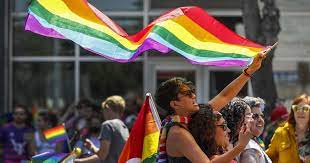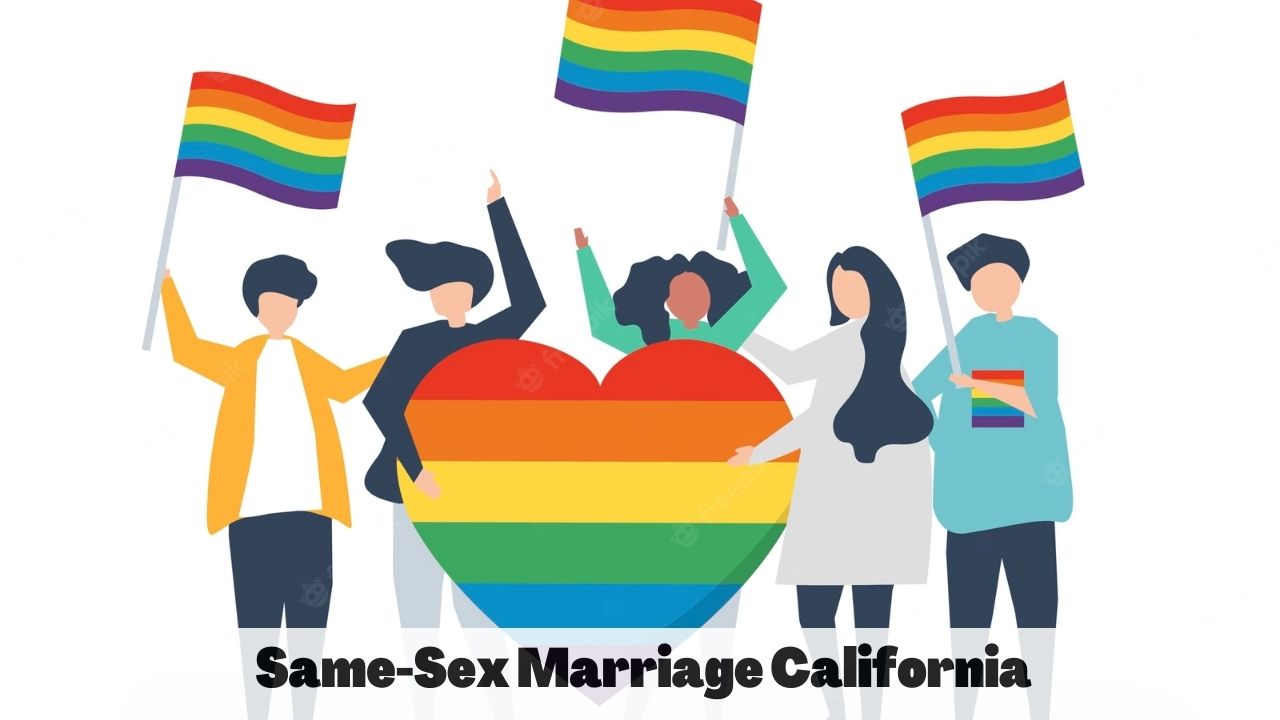More than 18 years after former San Francisco mayor Gavin Newsom broke federal law by granting marriage licenses to same-sex couples, President Biden is about to sign legislation that assures homosexual weddings are recognized by the federal government and every state in the country.
This week, when he signs the historical measure, he will likely be joined by another Californian: Vice President Kamala Harris, who played a crucial role in the protracted campaign for marital equality as state attorney general.
The occasion will be a tremendous, though imperfect, the vindication of the early political risk-taking of Newsom and Harris, two of California’s most famous Democrats who were at the forefront of a massive transformation in the way Americans see civil rights, family, and love.

According to Melissa Michelson, a political science professor at Menlo College specializing in LGBTQ politics, the signing of this measure signifies that the rest of the nation has caught up to California. Not only because California is such a significant and influential state but also because we have our finger on the future’s pulse; when California’s elected leaders take a risk on these topics, the rest of the nation may follow suit.
Respect for Marriage Act is an insurance policy to safeguard LGBTQ marriage rights if the Supreme Court overturns them. It was motivated by the court’s decision to reverse abortion rights nationwide this summer.
Even though Justice Samuel A. Alito Jr. wrote for the majority that the decision to overturn Roe v. Wade “concerns the constitutional right to abortion and no other right,” Justice Clarence Thomas’ concurrence raised concerns that other rights, such as contraception and same-sex marriage, could also be overturned in the future.
The final text of the measure that Congress handed to Vice President Biden compels states to recognize all marriages that were lawful where they were conducted and safeguards present same-sex partnerships in the event that the Supreme Court reverses its 2015 judgment in Obergefell v. Hodges.
However, the law provides less protection than Obergefell since it does not mandate that states permit same-sex marriage. Consequently, if the court were to reverse its decision, conservative states might outlaw LGBTQ weddings.
“I do not believe it hinders the effectiveness of the law. This was monumental, Senator Alex Padilla of California said in an interview. “However, there is still more work to be done in this and other areas where the LGBTQ population continues to experience prejudice. We recommitted to the continued effort, but let us not lose sight of how essential the Respect for Marriage Act is, particularly for same-sex couples in California, where same-sex marriage is legal, to know that their marriage will be acknowledged in all 50 states.
Even when Democrats made compromises, numerous conservative organizations opposed the package, and most Republicans voted against it.
In an email to voters, FRC Action, an arm of the conservative Family Research Council, referred to the bill as the “(Dis)Respect for Marriage Act” and said that it lacked “real religious liberty provisions.”

Five Republican lawmakers from California supported the legislation, while six opposed it. Rep. Kevin McCarthy of Bakersfield, who is sure to become speaker of the House next year when Republicans take control of the lower chamber, was among those who voted against the measure.
The overturning of Roe v. Wade has made LGBTQ supporters’ rights seem much more precarious, even in the liberal state of California.
Jennifer Pizer, the chief legal officer of the LGBTQ rights advocacy organization Lambda Legal, stated, “There is a frightening and nauseating sense of constitutional rights quicksand under our feet” in light of the possibility that the Supreme Court’s ruling on the fundamental right to marry could be overturned, similar to the constitutional protection for abortion rights.
Attorney and chief impact officer at the Los Angeles LGBT Center Terra Russell-Slavin described the Respect for Marriage Act as a “significant accomplishment” that would safeguard same-sex couples while crossing state boundaries.
Nevertheless, she said, “it does not go far enough.”
Similar to the current scenario with abortion, having differing marriage laws in various states “raises all sorts of concerns with access, racial justice, poverty justice, who can afford to leave the state, and all the financial obstacles accompanying that situation,” she added.
The personal background of Russell-Slavin mirrors the history of marriage equality in California. She met her future spouse soon after the 2008 passage of Proposition 8, which prohibited same-sex marriages in California. In 2011, they conducted a wedding ceremony, although it was not legally recognized. In 2012, they secured a registered domestic partnership, and in 2013, they were legally wed.
In that year, the Supreme Court ruled that the opponents of Proposition 8 lacked legal standing, so paving the door for same-sex weddings to restart in California. As attorney general of California, Harris declined to defend the statute, which she thought to be unconstitutional.
In her book, “The Truths We Hold,” Harris writes, “I was in my Los Angeles office when the message arrived.” “A spontaneous celebration erupted, with cheers and applause echoing throughout the corridors. After so many years of effort and setbacks, love had, at last, triumphed over all.
Two days later, Harris writes, she officiated the wedding of two women who had won the case challenging Proposition 8 in San Francisco City Hall
It was the same City Hall where Newsom made history nine years earlier by giving marriage licenses to same-sex couples in contravention of federal law during Valentine’s Day.
“At the time, this was seen as both a protest and an act of love,” said Newsom in a statement. While these federal safeguards are an essential step forward, we must continue to work for full equality in every state to guarantee that all marriages and persons are legally recognized and treated equally.
Deena Davenport-Conway and her husband, Gunner, were among many who raced to San Francisco City Hall in 2013 to marry after the passage of Proposition 8. They had already tied the knot in an unauthorized ceremony in Oakland.
Now, a decade later, Davenport-Conway fears that her privileges may be revoked.
“My wife and I have a shared future. We share a residence. We are planning our retirement together,” said Davenport-Conway, who lives in rural Inyo County and is the president of the budding Eastern Sierra Pride organization. “And someone might take it away from us at any moment… If they can reverse the Roe v. Wade decision, everything is conceivable.
Both Newsom and Harris took risks in their efforts to push marital equality. Newsom was criticized by other Democrats for going too far, too quickly, and was accused of stirring conservative fervor that aided the reelection of Republican George W. Bush in 2004.
When she campaigned for attorney general in 2010 against a Republican who said that the state’s top attorney should not pick and choose which laws to defend, Harris promised not to defend Proposition 8.
“For both of them, it was a pivotal event early in their careers,” said Democratic political strategist Brian Brokaw, who has worked on the campaigns of both Newsom and Harris.
The risks were rewarded with victories that enhanced their political careers and opened the stage for a tremendous cultural revolution. Since then, public support for same-sex marriage has increased considerably, with 71% of Americans currently in favor.
As support for marriage equality has become more widespread, LGBTQ activists have focused their efforts on other battles for liberty, respect, and safety. Professor of political science Michelson said that efforts to expand transgender rights and curb violent assaults on LGBTQ individuals are now at the forefront of the movement.
Michelson said that even while Harris and Newsom have shown themselves to be leaders who were ahead of their time on the topic of marriage, this does not guarantee their political futures. If Biden chooses not to seek the Democratic presidential candidacy again, Harris is seen as the front-runner. Newsom has said that he does not want to run for president, but he is attempting to increase his national reputation.
“As significant as this issue is to gay and lesbian individuals who are married or who want to be married,” Michelson said, “I doubt that it will be at the forefront of people’s concerns when it comes to the next presidential elections.”

